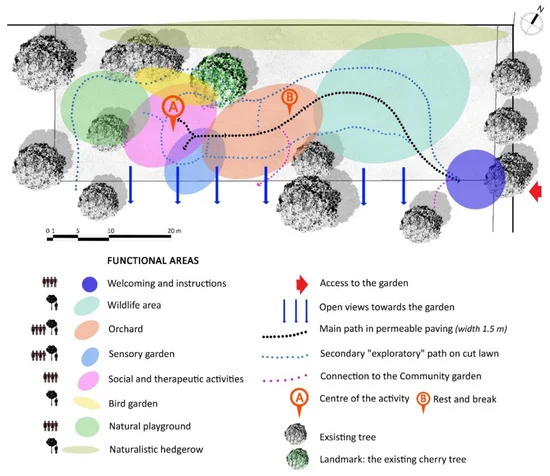Sustainable Co-Design with Older People: The Case of a Public Restorative Garden in Milan (Italy).
Marco Boffi, N. Fumagalli, G. Senes, L. Pola, P. Inghilleri

Abstract
The demographic aging and the evolution of lifestyles require new strategies to promote the well-being and active aging of elderly. Active aging depends on many factors: some of these are related to objective data such as physical environment, others are personal elements; it is important to improve environmental physical factors to encourage personal attitudes to the green spaces in use. To design a small sustainable restorative green space in Milan, Italy, restorative garden design criteria are summarized in the first section of the paper and both social and environmental sustainability are considered. The methodology section describes the co-design process and how it was applied to include different older user groups in the design of the area. In the results section authors apply a taxonomy based on the four properties of restorative settings according to the Attention Restoration Theory by Kaplan (compatibility, being away, extent, fascination): this provides a unified system to classify users’ expectations and to describe the final project. The proposed co-design process combines social and environmental sustainability, as it provides designers an insight about the user’s experience in nature. Such information can be fruitfully integrated with professional competences about comfort aspects and environmental protection in order to improve the whole design project.
Fumagalli, N., E. Fermani, G. Senes, M. Boffi, L. Pola, and P. Inghilleri. “Sustainable Co-Design with Older People: The Case of a Public Restorative Garden in Milan (Italy).” Sustainability 12, no. 8, 3166 (2020). https://doi.org/10.3390/su12083166


